2024 Conference schedule
MGFWS Annual Meeting & Awards Ceremony
Friday, 9:00 – 10:45AM
Live session
As we kick off the 2024 WSU Extension Master Gardener Advanced Education Conference (AEC), please join us for the Master Gardener Foundation of Washington State annual meeting to learn what the foundation has accomplished and goals for the future.
The meeting will be followed by the annual awards ceremony celebrating the accomplishments of several extraordinary WSU Master Gardener volunteers. Learn about our 2024 award recipients.


Welcome & Keynote Presentation: Adventures in Ecological Horticulture
Friday, 11:00AM – 12:30PM
Live presentation
Printable schedule-at-a-glance. All sessions will be recorded and made available to participants who have registered for a limited time after the event concludes.
Session 1 – Friday, September 27

Climate Change in WA State: Past, Present & Future
Instructor, Nick Bond
Live session
This presentation will review how the climate in Washington state has varied over the historical record, and projections of our future climate, from a gardening perspective.

Understanding & Bridging the Generations
Instructor, Tara Kuiper
Live session
Generational differences bring diverse perspectives, values, and approaches to communication, problem-solving, and relationships; when they are handled with understanding and awareness, these differences can foster a climate of adaptation and growth.

Preventing Food Waste: Beyond the Compost Bin
Instructor, Diane Smith
Recorded session
Households. Learn about efforts directed toward supporting households in preventing food waste. By educating individuals and families about mindful consumption, she contributes significantly to reducing food waste.
Climate Impact. Every morsel we eat has an environmental footprint. Learn about research and advocacy, and how our dietary choices impact the planet. From farm to fork, let’s examine the carbon footprint of our meals.
Food Savings. Food waste prevention is not just about the environment; it’s also about our wallets. By minimizing food waste, households can save money – up to $1600 annually.
Food Security. Food security is a fundamental human right. Learn about initiatives that bridge the gap between surplus and scarcity, ensuring that nutritious food reaches those who need it most. Recorded session.

Natives, Cultivars, Perennials: What Plants are Best for a Changing Climate
Instructor, Molly van der Burch
Recorded session
Discover the unique traits of natives, cultivars, and perennials. Explore how they vary in attracting pollinators, adding biodiversity, and demonstrating climate readiness for a drier Pacific Northwest region. Recorded session.

Developing Landscapes Through Storytelling
Instructor, Bob Scarfo
Recorded session
The jargon we use contributes to much of the shifting personal and community changes we are experiencing but can be minimized when replaced by the personalized nature of storytelling.
Session 2 – Friday, September 27

The Beauty of Weeds
Instructor, Mark Turner
Live session
Maybe they just showed up in your garden, or you notice them as you walk your neighborhood or drive down the road. They’re the plants we call weeds, the ones we didn’t ask to join our gardens. But just because they’re weeds doesn’t mean they’re ugly. In fact, some of our weeds are quite beautiful. Come on a journey showcasing some of our most unwelcome plants and get a few tips on controlling them, too. Live session.
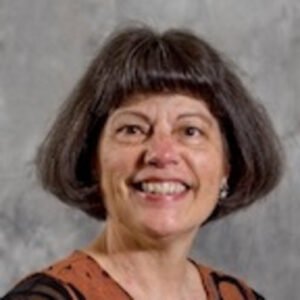
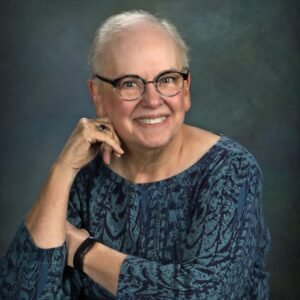
Changing the Role of Conflict from Challenge to Opportunity
Instructors, Dr. Laurie Stevahn, Dr. Tana Hasart
Live session
Our fast-changing world needs adaptable and resilient leaders who are skilled at identifying and resolving conflicts. The success of individuals and organizations depends on leaders who possess highly developed emotional intelligence, deploy effective responses to change, and use well-honed strategies for dealing with differing opinions and perspectives.
This workshop will provide a basic yet thorough introduction to conflict and conflict resolution. Participants will learn how to build skills to analyze conflict and create effective means for designing methods to harness and direct energy toward working as successful, high-performing teams. The workshop includes interactive opportunities to gain experience in fostering stronger, trusting relationships between those who disagree. Attendees will practice setting conflict resolution goals that avoid compromise while bridging differences and creating new options and solutions.

Urban Underground: Soil health in urban and peri-urban farms
Instructors, Douglas Collins, PhD
Live session
More people around the world now live in cities than in rural areas. While cities have long been economic and cultural centers, there is increasing demand for ecological and environmental services from urban spaces. Urban agriculture, which utilizes local soils and nutrient rich organic amendments, is recognized for the ability to provide products, income, social benefits, and ecological services.
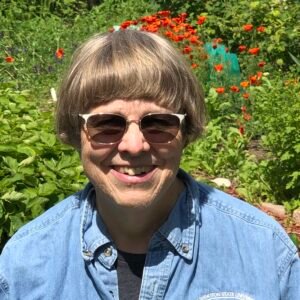

Growing Youth and Plants together
Instructors, Alice Allison, Sandra Rosenau
Recorded session
Extension Master Gardeners work with youth incarcerated at the Benton-Franklin Juvenile Justice Center (JJC) in Kennewick, Washington. Our goals are not only to educate these youth on basic gardening techniques but to foster self-esteem and cultivate a sense of belonging through giving back to the community. Master Gardeners provide science-based gardening instruction using Washington State University Extension training and information, emphasizing hands-on activities utilizing the JJC outdoor garden area with its raised beds.
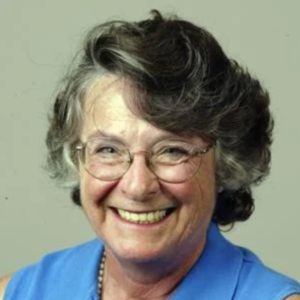
From Scraps to Soil: Mastering the Art of Composting
Instructor, Bonnie Orr, PhD
Recorded session
Compost is a soil amendment that enhances water retention and soil structure. Compost creates a biologically healthy soil by providing for earthworms, soil insects and microorganisms. In this engaging class with Dirt Diva, Bonnie Orr, you will learn how to compost safely.

Native Bees and the Washington Bee Atlas
Instructor, Karen Wright
Recorded session
There are at least 600 species of bees in Washington state! Karen Wright will be talking about basic bee biology and the diversity of bees in the Pacific Northwest. Most native bees are very different to the European honeybee. She will then give an introduction to the new Washington Bee Atlas (WaBA) that was formed in 2023.
Session 3 – Friday, September 27


Knowing How to Support a New Generation of Gardeners: Practical Insights for Extension Master Gardener Volunteers
Instructors, Sheri Dorn, Natalie Bumgarner
Live session
Recent heightened interest in indoor plants combined with a resurgence in gardening during the worldwide COVID-19 pandemic has generated large numbers of individuals new to gardening who are searching for information and skills. To effectively offer Extension educational programming to these new gardeners, it is essential to better understand the background, motivations, and experience of these new audiences.

How Climate Change Will Impact Life and Gardening in the 21st Century Urban Environments
Instructor, Dr. Paul Hessburg
Live session
Climate change is rapidly altering the conditions and lifestyles of people in the American West. Impacts range from extremely dry and hot summers, to warmer winters, reduced winter snowpack, rain on snow events, earlier spring and later fall seasons, longer summers, and flash and long duration droughts. These changes will continue for the foreseeable future and they will intensify with time.

Biodiversity in Food Plants: Why the Losses Matter
Instructor, Muriel Nesbitt
Recorded session
Trends in food crop biodiversity over the past several centuries will be illustrated. The importance of biodiversity will be discussed. Specific examples of crop variety losses will be examined, with special attention to Andean potatoes. Climate change will be discussed in the context of how it can cause biodiversity loss, and why it makes the conservation of biodiversity ever more important.

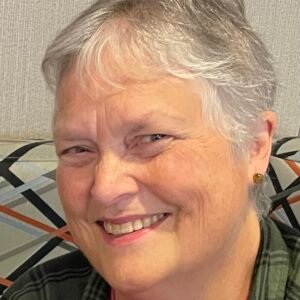
The Resilient Yard – Battling Climate Change at Home
Instructors, Mike Peronto, Kris Moberg-Hendron
Recorded session
The Resilient Yard is for homeowners who want to do something to battle climate change at home. The presentation breaks down a typical suburban yard into its component parts and gives you actions you can take to reduce your carbon footprint in your yard.

Mosses and Lichens, Our Evergreen Pacific Northwest
Instructor, Deborah Smeltzer
Recorded session
Mosses and Lichens are ancient and primitive life forms that are bio-indicators of clean air and help promote biodiversity in Pacific Northwest gardens. This presentation will cover for each of Mosses and Lichens: what is the life form, cultural characteristics, portraits from nature, fun facts, are mosses and lichens friends or foes, and how to control mosses and lichens if needed. This session is designed to educate master gardeners to be able to provide up-to-date and science-based answers in plant clinics for home gardener questions about mosses and lichens.
Session 4 – Saturday, September 28

Soil: What it is and How it Works
Instructors, James Cassidy
Live session
You will learn what soil REALLY is and why it not only makes your garden possible but how it makes everything possible!!!

Volunteer Vitality: The Wellness Benefits of Extension Volunteer Programs
Instructor, Anne Yasalonis
Live session
Extension volunteer programs not only benefit the communities they serve, but they also benefit the volunteers themselves. The health-related benefits of volunteerism have been documented in various studies. Benefits include reduced stress, increased self-esteem, and improved mental and physical health.

Food Systems and Climate Change
Instructor, Joan Qazi
Recorded session
Food systems are both a cause and a solution for our changing climate. In this session, we will discuss the ways that our food systems contribute to greenhouse gas emissions and how we might focus on robust local food systems, plant-based diets, reduced food waste, and healthy soils as a mitigation strategy against the higher temperature projections of global warming.

Climate Change and Biodiversity: Impacts and Solutions
Instructor, Christopher Cosma
Recorded session
Climate change is one of the most severe threats to biodiversity. Heat, drought, and more intense storms are impacting plants, insects, and other organisms at all biological levels—from their traits to their interactions with other species. This exacerbates species declines and extinctions, and compromises many essential ecosystem services that humans depend on.


Therapeutic Horticulture: Enhancing Quality of Life and Well-Being for Those We Serve
Instructors, Teresia Hazen, Meghan McKiernan
Recorded session
While everyone will be faced with the health impacts inflicted by climate change, certain groups will disproportionately feel the health impacts, as they can be less climate resilient.
Session 5 – Saturday, September 28

How to Adapt Your Home Landscape to Changing Conditions in the Wildland Urban Interface
Instructor, Al Murphy
Live session
Climate Change impacts the vegetation around your home in the Wildland Urban Interface and how to cope to those changing conditions with the adaptable vegetation to increase the probability of the survival of your home in the event of a wildland fire.

Growing Vegetables when Water is Scarce
Instructor, Lisa Taylor
Live session
Explore growing vegetables during drought-like summers and learn about simple techniques for conserving water, delivering water to plants and enriching the soil so it retains moisture longer.


Mason Bees: How to Properly Care for Them in Your Garden
Instructors, Thyra McKelvie, Briana Price
Recorded session
Millions of bee hotels are purchased every year, but not many people realize they require annual maintenance. The lack of proper care can unintentionally harm bee health.

Irrigation Management in a Changing Climate
Instructor, Troy Peters
Recorded session
A changing climate is predicted to increase the difference between when water supplies are available, and when they are needed for irrigation. In addition, the rising temperatures are predicted to increase the demand for irrigation water. In that environment, we will discuss when to turn your irrigation water on, and how long do you leave it on to get the most benefit out of the water, while saving water, saving energy, and improving environmental water quality.

Growing Roses in A Changing Climate
Instructor, Michele Thomas
Recorded session
How to address the problems that can/will show up as the climate keeps changing and how it can affect roses. Looking at the changes in the new 2023 USDA plant hardness zonal map and how it may change rose selection. What needs to be done to protect roses when the edge of the polar vortex moves down over Washington State. Can roses be protected when the temperatures climb to 110 to 116 degrees? How do you prepare soils to help sustain roses when our summers become drier, and drought conditions becoming more common, along with basic rose tips on growing healthy roses.
Session 6 – Saturday, September 28

Lovely Lawn Alternatives
Instructor, Sue Goetz
Live session
From magical meadows to no-mow- plantings and seed mixes; how to convert your lawn space. Tips and techniques to remove lawns, what to plant, and tips on switching from a high-maintenance lawn to sustainable beauty.

The Challenges of Native Plant Gardening in the Inland Northwest
Instructor, Mel Asher
Live session
Summer high temperatures routinely range from 90-95F, and rainfall is scant and unpredictable… welcome to gardening in the inland northwest!

Tips and Tricks for Using iNaturalist for Identification While Contributing to Science
Instructor, Karla Salp
Recorded session
In this session, WSU Clallam County Master Gardener and iNaturalist enthusiast Karla Salp will share tips and tricks for using both the iNaturalist app and the iNaturalist website.


NICH: Connecting Extension, Research, Industry, and the Public Garden Sector
Instructors, Sheri Dorn, Natalie Bumgarner
Recorded session
The world of horticulture is amazingly diverse with a wide array of plant production and services businesses engaging with horticulture researchers, educators, volunteers, communicators, and the gardening public. While these groups have many different interests, the key foundation that ties everyone together is the need for science-based information to support gardening success and environmental sustainability.

A Gardening Response to Climate Change
Instructor, Katie Doonan
Recorded Session
Part I: Climate change is not just a looming, future threat. What are some practical implications of climate change in the garden? How can we improve climate adaptation and resiliency through management, even in an uncertain future?
Session 7 – Saturday, September 28

Landscaping for Birds and Wildlife
Instructor, Betsy Dudash
Live session
Learn about the key elements that make a landscape hospitable to birds and other wildlife, including pollinators: habitat and shelter, including protection from predators; food sources through the seasons; fresh water; and areas for foraging, socializing, and bathing.

Right Plant, Right Place: The Art and Science of Planting Design
Instructor, Nancy Goodin
Live session
In this class Nancy discusses the relationship between site conditions and plant needs to select and install the appropriate plants for your garden. In the era of Climate Change, it’s more important than ever to use climate-resilient solutions to encourage the best outcomes for plant success and environmental sustainability. We will talk about why it’s important to work with nature and how to implement some key strategies from a horticultural and design perspective.

Planning for the Unplanned: Integrating Ecological Restoration Techniques and Landscape Design
Instructor, Larry Weaner
Recorded session
Using native plants is increasingly accepted in landscape architecture and design. Knowing how to incorporate and work with the ecological patterns and processes associated with native plants, however, is less well understood.
Explore ways of integrating ecological restoration techniques and traditional design aesthetics to achieve beautiful, diverse landscapes for varied situations—from small gardens to large, multi-acre projects. Meadows, old fields, and woodland projects are shown in detail, from conceptual stage to full establishment and management, illustrating the exciting results that can be achieved when ecological restoration is combined with the visual art of landscape design.

A Gardening Response to Climate Change
Instructor, Katie Doonan
Recorded session
Part II: Climate change is not just a looming, future threat. What are some practical implications of climate change in the garden? How can we improve climate adaptation and resiliency through management, even in an uncertain future?


Tour of the Derby Canyon Natives Nursery Demonstration Landscape
Instructors, Mel Asher, Betsy Dudash
Recorded session
Come visit (virtually) the Derby Canyon Natives Nursery Garden in Peshastin, filmed in early June 2024. This demonstration garden was planted over 20 years ago and contains over 100 plants native to North Central Washington. Mel Asher and Betsy Dudash will highlight favorite plants, discuss how to site them, and detail annual maintenance and watering.
